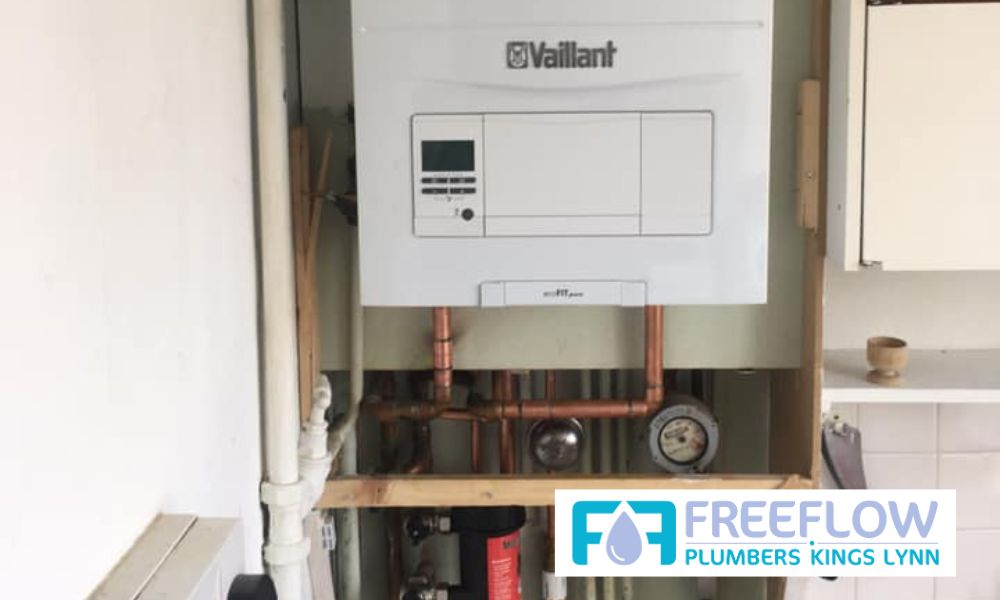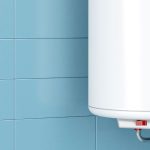Are you ready to master the art of boiler maintenance?
Get ready for a detailed journey as we explore the five essential things a boiler service checks in the UK.
Gas pressure and safety controls, combustion efficiency and carbon monoxide levels, heat exchanger and flue inspection, water pressure and leakage, and overall system performance and functionality – prepare to have your mind expanded as you learn more about these topics.
Buckle up, because this journey is going to take your boiler knowledge to new heights!
Gas Pressure and Safety Controls
The engineer will ensure that gas pressure and safety controls function correctly during boiler maintenance for safety. Gas pressure is crucial for effective combustion. The engineer will measure the gas pressure using a manometer, ensuring that it falls within the recommended range specified by the manufacturer. They will also inspect safety controls, such as flame failure devices and high limit thermostats, to ensure they are operating properly. These controls play a vital role in preventing accidents and safeguarding against potential hazards. By examining gas pressure and confirming the correct operation of safety controls, potential risks can be reduced or eliminated. Continuing with combustion efficiency and carbon monoxide levels…
Combustion Efficiency and Carbon Monoxide Levels
Make sure to regularly monitor the combustion efficiency and carbon monoxide levels in your boiler. This is essential for maintaining optimal performance and ensuring the safety of your home. Here are some key things you need to know about boiler maintenance and safety precautions:
- Combustion Efficiency:
- Observe the flame colour and stability during operation.
- Adjust the air-to-fuel ratio to achieve efficient combustion.
- Clean or replace any blocked burner nozzles or heat exchanger surfaces.
- Carbon Monoxide Levels:
- Install a carbon monoxide detector near your boiler.
- Test it regularly to ensure it is functioning correctly.
- Schedule annual inspections by a qualified technician to measure CO levels.
Checking the combustion efficiency and carbon monoxide levels regularly can prevent potential hazards and optimise your boiler’s performance.
Now, let’s move on to the next section where we will discuss heat exchanger and flue inspection.
Heat Exchanger and Flue Inspection
Regularly monitoring the heat exchanger and flue is essential for maintaining your boiler’s performance and ensuring safe operation. The heat exchanger is responsible for transferring heat from the burner to the water, while the flue removes combustion gases from the boiler.
Over time, these components can become clogged with debris, reducing their efficiency and potentially causing carbon monoxide buildup. To prevent this, it is vital to schedule regular flue maintenance and heat exchanger cleaning. During a service check, a qualified technician will inspect these components for any signs of damage or blockages. They will clean them thoroughly if necessary, ensuring optimal performance and minimising safety risks.
Taking a proactive approach to maintaining your boiler’s heat exchanger and flue can ensure its longevity and reliability.
Transitioning into the next section about ‘water pressure and leakage,’ monitoring these aspects is important as part of your boiler service check-up.
Water Pressure and Leakage
Monitoring water pressure and checking for leaks is essential in maintaining the performance and safety of your boiler. Here are some key points to consider when it comes to water pressure and leakage:
- Water Pressure: It is necessary to have the correct water pressure for efficient boiler operation. Low water pressure can lead to inadequate heating, while high pressure may damage the system. It is important to regularly check the pressure gauge on your boiler to ensure it falls within the recommended range.
- Leak Detection: Leaks can occur in various parts of the boiler system, including pipes, valves, and fittings. It is important to inspect these components regularly to look for any signs of leakage, such as dampness or pooling water. Taking prompt action to address leaks helps prevent further damage and ensures optimal system performance.
- Water Quality: The quality of water circulating within your boiler is crucial for its longevity and efficiency. Poor water quality can cause corrosion, scale buildup, and reduced heat transfer capabilities. Applying appropriate water treatment measures, such as regular flushing and chemical dosing, helps maintain optimal conditions.
Overall System Performance and Functionality
To ensure optimal performance and functionality of your boiler system, it is vital to address any potential issues promptly. Regular system maintenance is crucial to achieve this objective.
Inspections and checks can help identify and resolve any issues before they escalate. It is important to monitor the overall performance and functionality of your system. This includes assessing energy utilization efficiency and ensuring that your boiler operates at its highest efficiency level.
Temperature settings, fuel usage, and heat distribution should be regularly monitored to maximize the energy efficiency of your system. It is also essential to inspect components such as valves, pumps, and control systems for any signs of damage or wear and tear. This will help keep the system running smoothly and prevent costly breakdowns.
Frequently Asked Questions
What is the average cost of a boiler service in the UK?
The cost of a boiler service in the UK can vary depending on several factors. These factors include the type and size of the boiler, its age and condition, and the location of the property.
In general, you can expect to pay around £70 to £120 for a standard boiler service. Additional repairs or maintenance may increase this cost.
It is recommended to get in touch with a professional heating engineer for a precise estimate tailored to your specific requirements.
How often should a boiler be serviced to maintain its efficiency?
To maintain its efficiency, it is recommended that you service your boiler annually. Regular boiler maintenance ensures optimal performance and increases its lifespan.
Scheduling an annual service can help you detect any potential issues early and prevent costly breakdowns. This proactive approach includes cleaning internal components, inspecting for leaks or corrosion, checking gas pressure, and verifying proper ventilation.
Moreover, regular servicing improves energy efficiency, reduces carbon emissions, and ensures safety by detecting any potential carbon monoxide leaks.
Are there any specific signs or symptoms that indicate a boiler requires immediate servicing?
If you detect signs of a boiler in need of servicing, such as strange noises or a decrease in heating efficiency, it is essential to take prompt action.
Regular maintenance of your boiler is of utmost significance to guarantee its ideal performance. Neglecting these warning signals could lead to more serious problems later on.
A properly maintained boiler will work efficiently, offering effective heat distribution and minimizing energy usage.
Do not disregard the importance of regular inspections and servicing to prevent possible breakdowns or expensive repairs.
Can a homeowner carry out basic boiler maintenance tasks themselves, or is it advisable to engage a professional?
When it comes to carrying out maintenance tasks on your boiler, it is highly recommended to hire plumbing contractors. Boiler systems are intricate and require specialised knowledge and expertise to ensure correct functioning and safety.
Professionals possess the necessary training and experience to accurately perform tasks such as cleaning, inspecting, and adjusting components. Attempting these tasks yourself could result in expensive mistakes or even dangerous situations.
For the best outcomes, it is always advisable to let professionals handle boiler maintenance.
Are there any government regulations or guidelines related to boiler servicing that homeowners should be aware of?
When it comes to boiler servicing in the UK, homeowners should be aware of government regulations and guidelines. These ensure that the service is carried out safely and effectively.
The Gas Safety (Installation and Use) Regulations 1998 outline the legal requirements for boiler maintenance. According to these, boilers should be serviced annually by a qualified professional.
This will help to identify any potential issues early on, so necessary repairs or adjustments can be made, guaranteeing optimal performance and safety.
Thanks for reading, please browse some of other posts or check out our services below:












